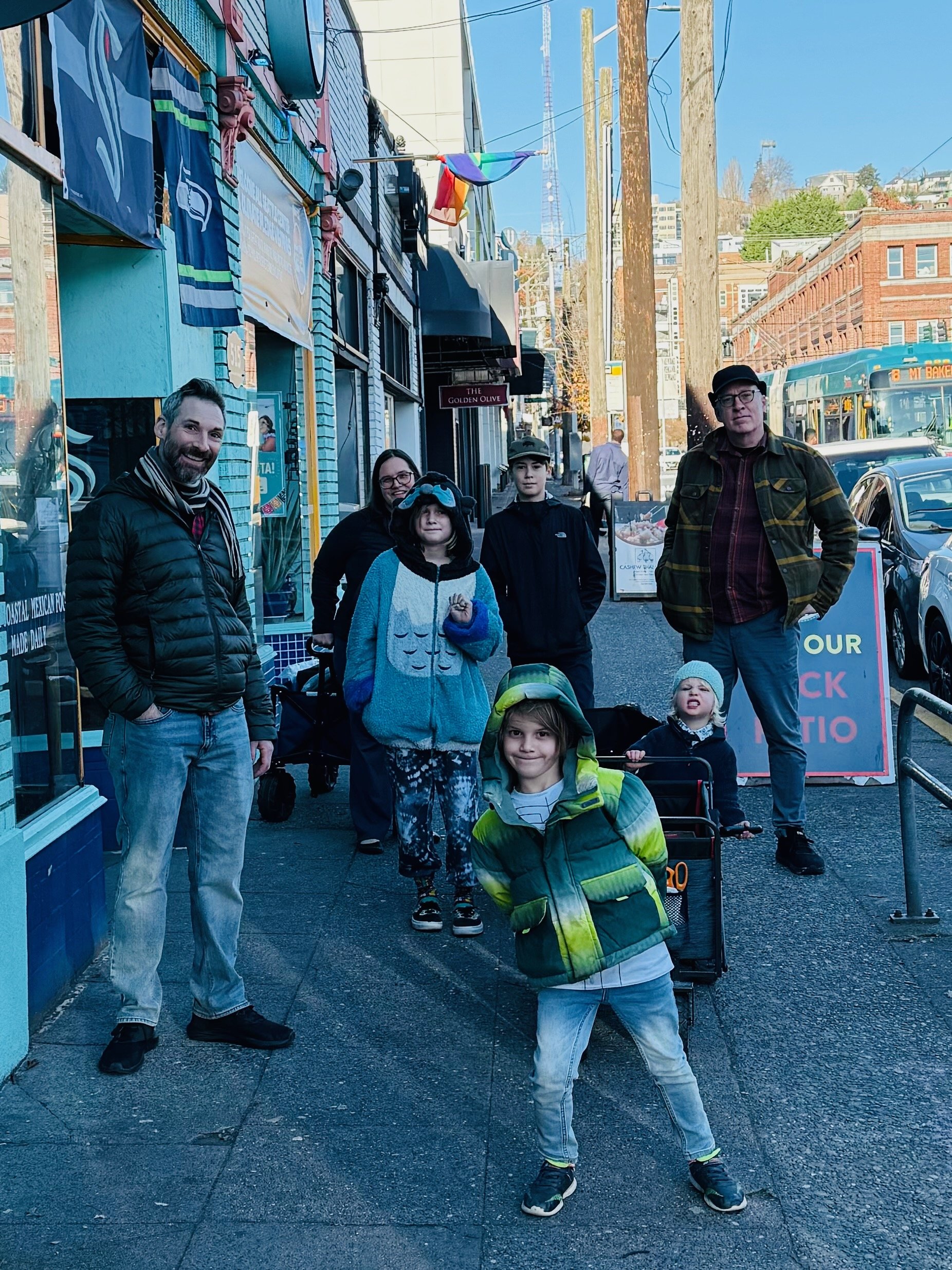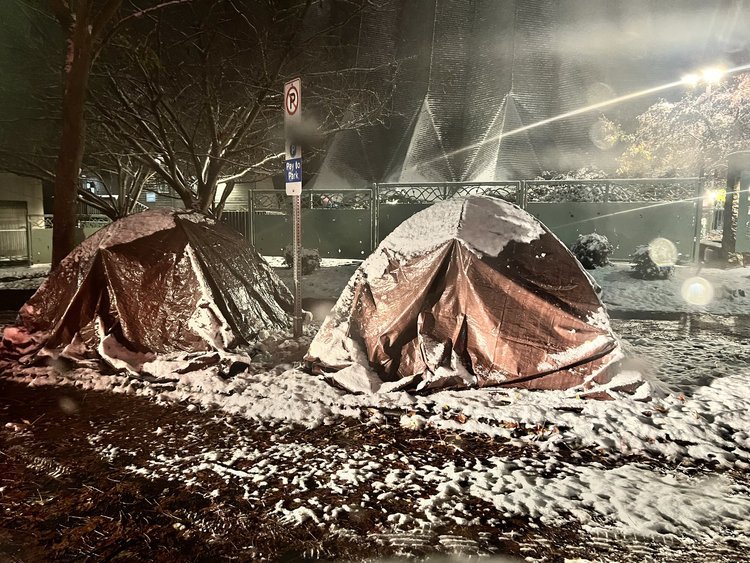St. Paul’s in the Neighborhood (SPiN)
Weekly Activities
Every Sunday afternoon, we pack up food and other supplies (cold weather supplies when the weather requires those, and sometime even spare tents when there is a need) and walk them around the neighborhoods between the church and Seattle Center with our wagons.
We let people know that they are seen.
We make friends.
They are our neighbors and
we are called to love them.
Long-term goals
We are hoping to permanently improve the lives of our neighbors by learning their stories and figuring out what they need right now to make their lives a little bit safer. We work with REACH when people request specific assistance with housing or social services needs.
Help us keep essential items stocked by making purchases through our Amazon Wishlist:
FAQs
-
At St. Paul’s we have all taken a vow (as part of our baptismal covenant) to respect the dignity and humanity of every person. What we do in the neighborhood is simply putting that promise into action. This is a two-way relationship. We benefit from the companionship that we provide to our neighbors, and we benefit when our neighbors help us out by keeping our property clean and safe, and sanitary.
-
Nobody wants to be homeless. The people who live here have run out of other options. Their current choices are to live here and be fed, or to live here and starve. Likewise with our Honey Buckets that we provide in our parking lot. If people do not have access to a bathroom their need does not just vanish. Providing an enclosed and sanitary bathroom helps to restore some dignity.
-
Sadly, the neighbors in the tents are too frequently victims of crimes. So the answer to the implied question, “Do these people commit crimes?” is No. They are just trying to live in peace. But crimes against them, including arson and attempted murder, are a serious problem, as feelings against their presence rise to violent hatred.
-
Almost all the people that we meet on our SPiN walks are homeless because the healthcare system has failed them. Sometimes this is because they have incurred a large medical bill either for themselves or for a close relative. Often it is because our health system does a very poor job of dealing with mental health. Once people are forced into living on the streets, they often have no option other than to self-medicate, usually with illegal drugs. This adds to their problems, but there aren’t usually other options available to somebody who is suffering extreme pain (physically or emotionally) while experiencing homelessness. Sobriety is very hard to achieve when living in a safe and stable environment. It is almost impossible while living on the streets.
-
If you run a business and you are interested in employing any of our neighbors at a living wage, please contact St. Paul’s Episcopal Church, and we will arrange introductions. But if your answer is “I would rather not employ these people,” then you have just addressed the predicament they face.Many of our neighbors experiencing homelessness suffer from mental illness or addiction in ways that make them functionally unemployable in our current economy. We must recognize this reality and have compassion on those people who are left behind by our system. There are some social services available to them, but clearly not enough. We must all work to change this.
-
If their only means of survival is the kindness of strangers, they need to be in the city, with a lot of people, so they stand a chance. This comes with a lot of dangers, of course, since they will run into hostility and resentment from many people as well. They don’t have good choices under the current system.There are not enough safe shelter beds available in Seattle. There are typically years-long wait lists to get a private space or a tiny house. There are often beds available in shelters that are in a group room. We have not encountered any neighbors who have used this group living option that have not been abused in this situation. Items are stolen, and people are beaten and sexually abused. This is especially true for women and members of the LGBTQ+ community. There are a small number of people experiencing homelessness who have a fear of being indoors and will not accept even a private locking room, but they are the exception. When you hear that people turned down the offer of shelter, it is almost always because the shelter offered is a bed in a group dormitory and it would be unsafe for them to accept that offer.
-
This is a wonderful question to ask. If you would like to support St. Paul’s in Neighborhoods (SPiN), contact the church office for specific information. We need people to help us with our wagon walks, and we need supplies. Also, when you are walking by, make eye contact and say ‘Hello’. Sometimes, the human interaction you can give is more rare than food. Learn people’s names. Make friends. If you are about to do some grocery shopping, ask if you can pick up anything for them. At St. Paul’s we believe that every person is a valued child of God, and we strive to treat them as such.
In the public forum, you can encourage your elected officials to increase support for our neighbors in poverty. There is not nearly enough support for mental health services, which leaves even the most helpful of us at a loss without the proper training.
For participants in need of outreach services:
Here are some of the resources that we have collected to share with participants looking for other options. Feel free to share with your friends, family, and neighbors:



